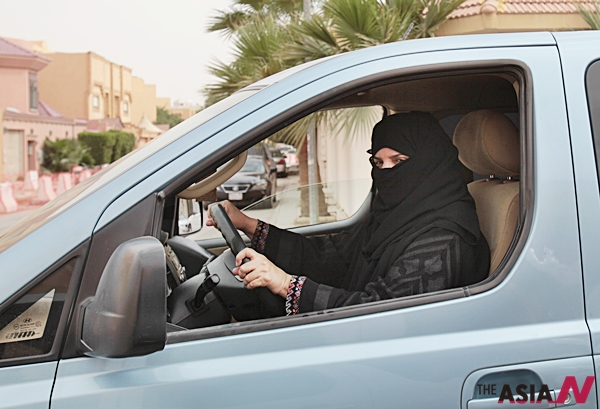‘남성우월주의’ 만연한 중동 “유능한 여성과 결혼하면 안돼”
* ‘아시아엔’ 연수 외국기자가 작성한 기사의 한글요약본과 원문을 함께 게재합니다.
[아시아엔=라드와 아시라프 기자·번역 최정아 기자] 최근 미국의 한 연구소에서 미국 대학생들을 대상으로 ‘남성이 유능한 여성(superior women)을 어떻게 받아들이는지’에 대해 조사·분석했다. 결과는 꽤 놀라웠다. 남성 응답자들은 상대적으로 덜 유능한 여성에게 더 많은 관심을 보였다.
기자가 매주 일요일 고정출연하고 있는 ‘KBS World Radio’ 아랍어 방송에서도 이 연구조사를 두고 열띤 토론이 열렸다. 13일 ?방영된 KBS ‘월드 라디오 아랍어 채널’(World Radio Arabic channel)의 ‘청취자 편지’(The Listeners’ Letter) 코너에서 중동 출신 청취자들과 남성우월사상이 강한 중동지역의 관점에서 바라보는 ‘유능한 여성’(superior women)에 관해 이야기를 나눴다.
중동의 다양한 국가에서 온 청취자들이 이 논의에 참여했지만, 답변의 내용은 비슷했다. 남성들은 “유능한 여성이 남성에게 도전을 하거나, 이들이 남편에게 ‘남자답지 못하다’고 느끼게 하면 안된다”고 답했다.
팔레스타인에서 온 여성 샤이마는 “팔레스타인 남성들은 여성들의 사회적 성공과 성취를 인정한다”며 “단, 유능한 여성과 연인이 되면 말은 달라진다. 남성들이 유능한 여성에게 질투, 열등의식, 자격지심을 느낄 것이기 때문”이라고 말했다. 튀니지, 알제리에서 온 다른 여성들은 “유능한 여성들은 사회적 성공으로 부터 많은 것을 얻지만, 남성은 이를 받아드리지 못한다”고 말했다. 반면 이집트에서 온 알라는 “남자들은 성공한 여성들을 인정하지만, 자신보다 열등하다고 생각되는 배우자를 찾는다”고 말했다.
남성들의 답변도 비슷했다. 알제리에서 온 남성 베나무어는 “대다수 남성은 유능한 여자를 사귀면 위험하다고 생각한다”며 “남편을 모욕하거나 쪽팔리게 할 수있기 때문”이라고 말했다. 중동 남성은 여성의 삶을 통제하려는 경향이 있다. 즉, 남편의 지시대로 따라야 한다는 것이다. 이집트에서 온 남성 모스타파 모하메드 또한 베나무어와 같은 의견을 냈다. 그는 “일반적으로 뛰어난 여성들은 ‘결혼 생활’에선 환영받지 못한다”고 말했다.
몇해 전부터 중동 사회에선 여성들이 자신의 능력을 증명하려고 노력하기 시작했다. 하지만 아직 ‘능력있는 여성’들을 받아들일 준비는 되지 못한 듯하다.

Successful women and Middle Eastern mentalities
A recent American study was conducted in a number of universities across the states, including Buffalo University and University of Texas, on whether men accept “superior women” or not.
The study’s main focus was to find out whether certain characteristics of women could affect their status in society and even possible relationships in the future with “inferior” men. The study used the help of over 100 men, and their attraction to certain women was tested before and after knowing she’s smarter on in any way superior to them, and how it would reflect on any possible relationships.
The results were quite surprising as men showed more interest in women who scored less in math and English tests, while losing all motivation to pursue women who showed excellency and overpowered them.
This concept is the seed of the upcoming discussion on KBS’ World Radio Arabic channel, as they tackle this issue on a Middle-Eastern and Arabic scale, seeing how women’s success translates into these more conservative societies. On the weekly show “Listeners’ Letters”,Youssry Sawaby, the host of the show, asked Arab listeners to share their stories related to this issue.
The replies varied greatly but despite being from different regions, almost all men and women agreed on almost the same answer each. Women declared that men are certainly attracted to smarter and superior women, but when it comes to long-lasting relationships or marriage they’d definitely consider a less-smarter partner who wouldn’t challenge them. While men said that they’d appreciate a smart woman but if she starts challenging him or “making him feel less manly” they’d definitely lose interest in her.
Shaimaa from Palestine said that men accept women’s success and achievements but once they’re in a serious relationship, their jealousy and inferiority complexes get in the way, forcing women to let go of their ambitions if they still want a life with them. Other women like Arwa from Tunisia and Sirine from Algeria stated that a smart women is a profit for society in general and men especially even if they don’t realize that, while Alaa from Egypt confirms that men look up to successful women but when it comes to marriage they’d should someone who’s inferior to them, to be able to show off their skills.
Benameur from Algeria had a response that’s shared by the majority of men, as he said that smart women are dangerous to their men, as according to him, she could insult him, embarrass him, and try to take control over their shared life, trying to overshadow him, “A women should act according to her husband/partner’s instructions. Mostafa Mohammed, from Egypt, had the same opinion, as he said that if her superiority start to leave its effect on the way he runs their life, then her presence is no longer welcome.
Superior women have started to prove themselves in Middle-Eastern societies, where a couple of years ago it was unheard of women to have done what women nowadays managed to accomplish. But most mentalities in these Arab societies have yet to change to accept that.





